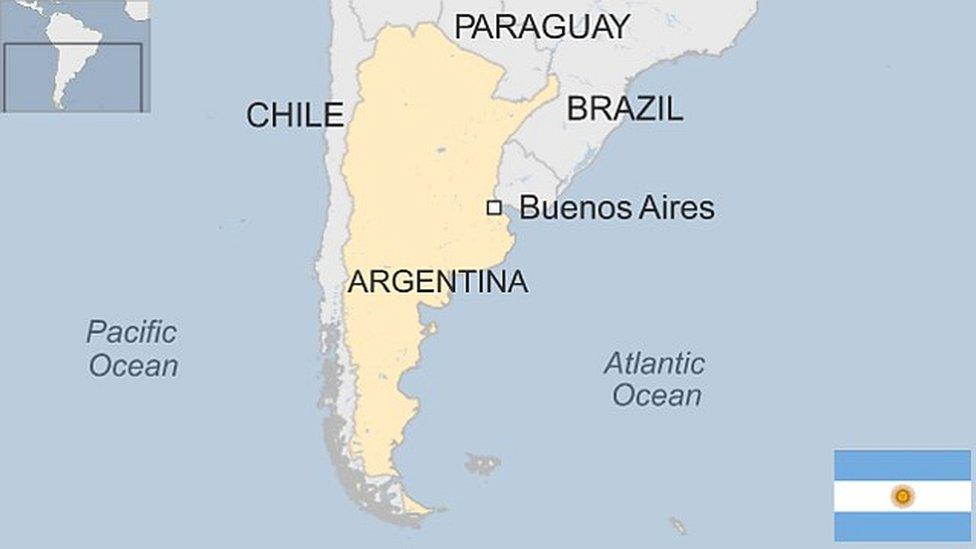Argentina: Tens of thousands march against Javier Milei's cuts
- Published
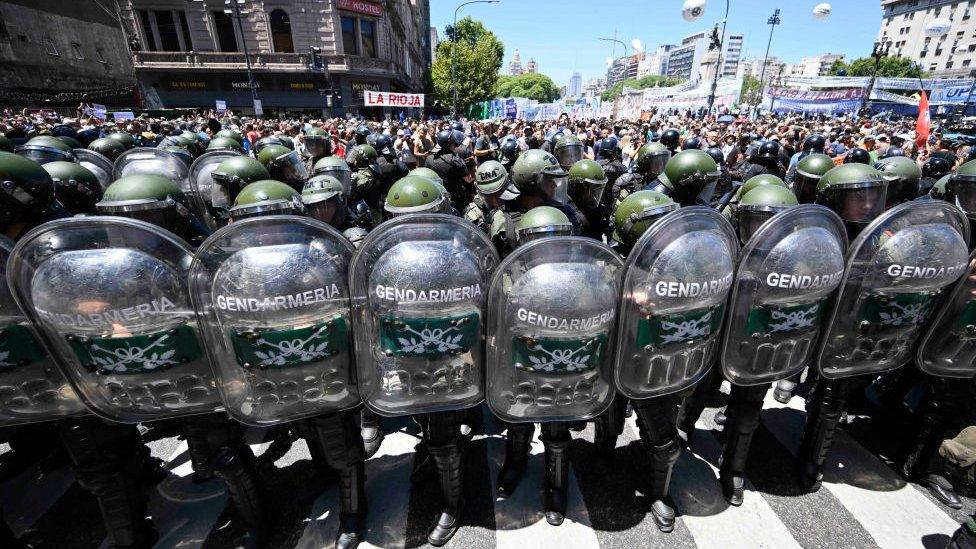
Riot police guard the Argentine congress during protests in Buenos Aires
Tens of thousands of Argentines have joined protests in the first major challenge to President Javier Milei's plans to slash workers' rights.
Large crowds gathered in the heart of Buenos Aires and other cities for demonstrations called by the CGT union.
Mr Milei was sworn in 45 days ago promising deregulation, deep spending cuts and the devaluation of the peso.
Protesters on Wednesday bore placards reading "eating is not a privilege" as they were faced down by riot police.
Others read "The homeland is not for sale" and "Stop robbing retirees".
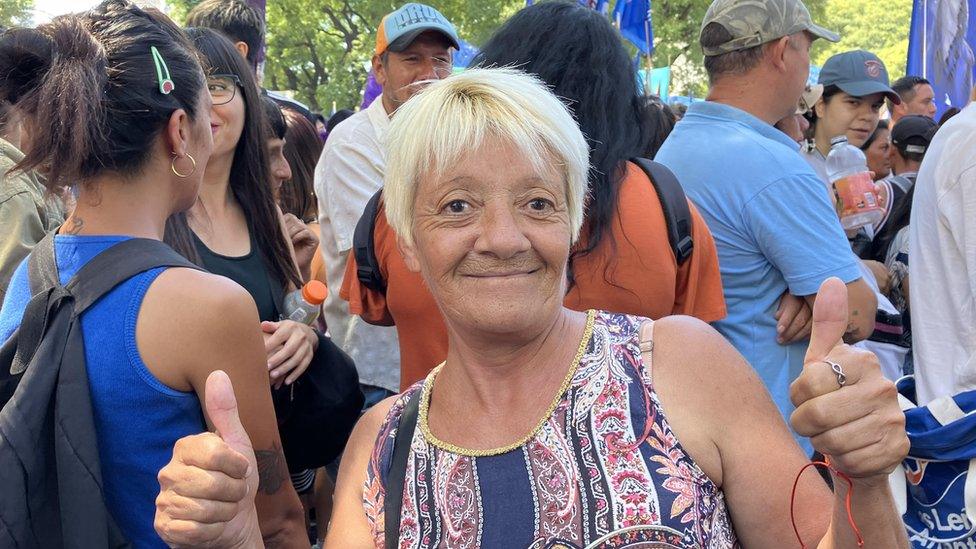
Valentina, a pensioner, said she thought the president had "forgot about the poor"
The main rally in the capital was outside Congress, where politicians discussed Mr Milei's plan to deregulate the economy, slash labour rights and cut large areas of government to revitalise a country suffering 200% inflation and 40% poverty levels.
He has also announced his intention to abolish rent caps and remove government subsidies on everyday items.
The CGT, which has seven million members, has been joined by other smaller unions and civic groups vowing they will "not yield an inch of what has been achieved" for workers' rights.
"People are angry... nobody can deny it," said CGT co-leader Héctor Daer.
Protesters in the capital told BBC News they were marching to give voice to popular opposition to Mr Milei's plans.
Valentina, a pensioner, said the president had "forgotten about the poor" and was putting her country "up for sale".
Nahuel, from the social movement Movimiento Evita, said the working classes were suffering under Mr Milei's rule.
"None of the laws they are trying to pass in congress are to help the working class, who are the ones taking the hit and the one that is here today," he said.
The strike on Wednesday, lasting 12 hours, affected public transport, flights and other services. Aerolineas Argentinas cancelled nearly 300 flights, affecting more than 20,000 passengers.

Nahuel, from the social movement Movimiento Evita, believes the working class is suffering
Security Minister Patricia Bullrich insisted the Milei administration would not be defeated, and said on Twitter, also known as X, that far more people went to work than walked out.
She denounced "mafia labour unions, managers of poverty, complicit judges and corrupt politicians... who resist the change democratically decided by society".
Opposition parties and the unions say the proposed deregulation and public spending cuts will hit the most vulnerable and increase poverty.
Mr Milei blames decades of overspending by left-wing populist governments for Argentina's economic decline.
He has said that "shock treatment" would be needed to drag the country out of its economic crisis, and added that those who opposed him would usher in "a social catastrophe of biblical proportions".
His reforms are being challenged on several fronts, with more than 60 lawsuits already filed, and he has already faced several waves of public demonstrations.
His attempt to increase the job probation period from three to eight months, reduce compensation in case of dismissal and cut pregnancy leave has already been frozen by a court pending a review by the country's congress.
The government is also leaning on congress to approve the privatisation of state enterprises. However, his party is only the third largest in parliament and faces opposition from the larger parties.
Mr Milei's attempt to boost export competitiveness by devaluing the peso by more than 50 percent last month has also been criticised.
"What was gained in competitiveness is lost with inflation," economist Martin Epstein told AFP.
Mr Milei reversed plans to cut public funding of the film industry after a backlash from film stars.
With reporting by Alba Morgade in Buenos Aires
Related topics
- Published20 November 2023

- Published11 December 2023
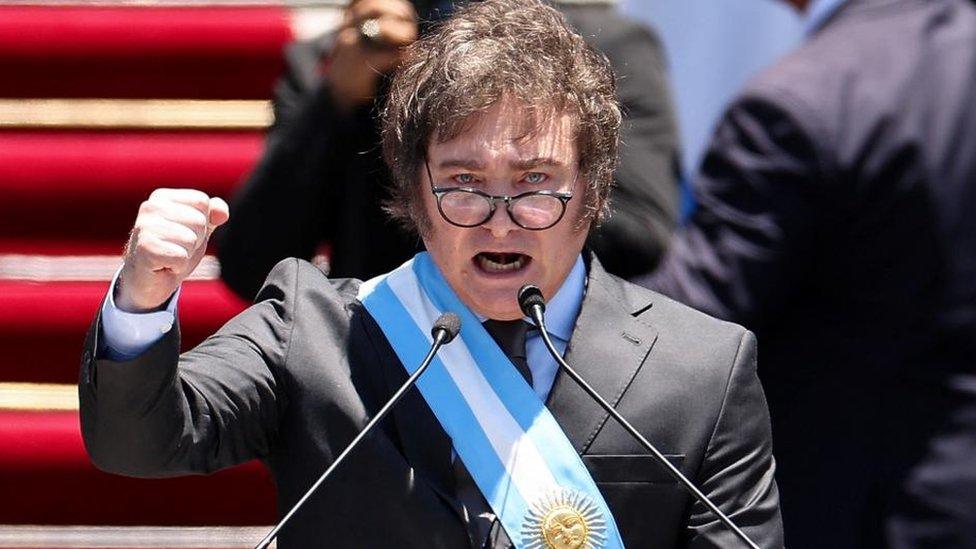
- Published21 December 2023
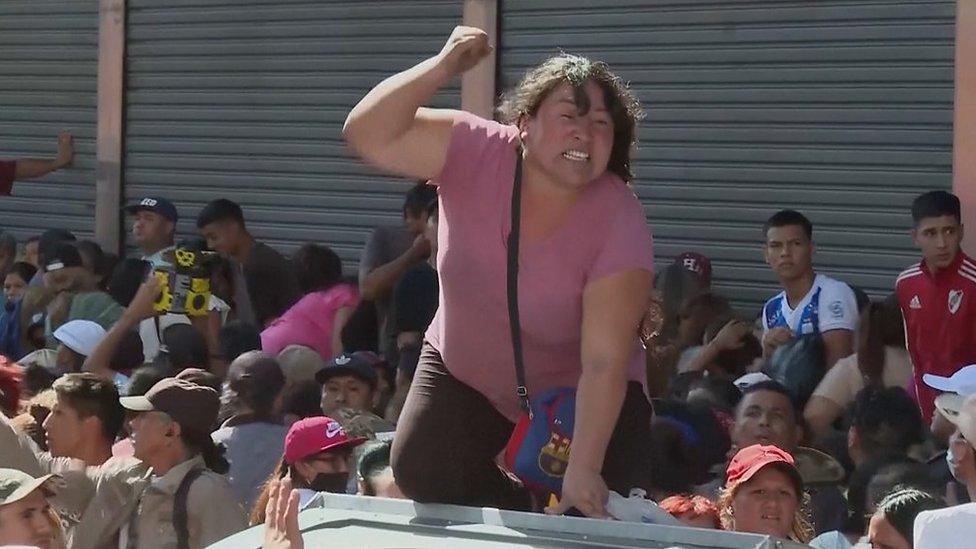
- Published8 January 2024
